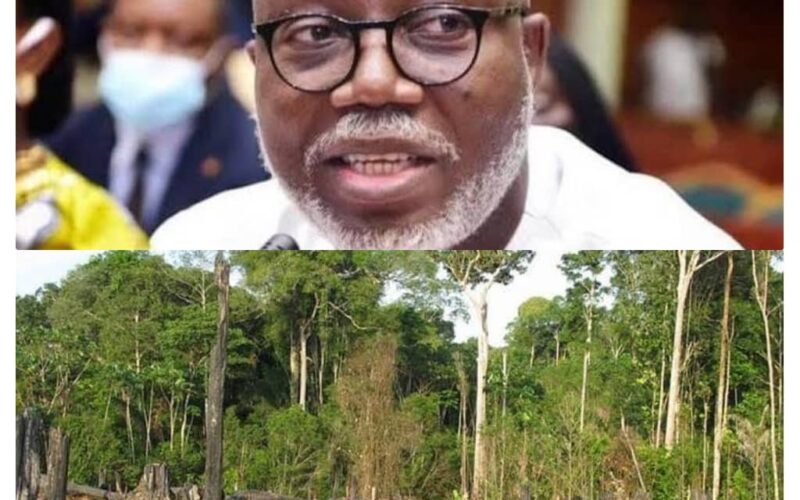Governor Lucky Aiyedatiwa is facing a growing crisis that could lead to a serious crisis, derail his re-election hopes and make him extremely illegitimate, especially among the Ikale people, over allegations that he has enabled a criminal logging cartel led by an illegal operator called ‘Abugi’ from the governor’s own Ilaje ethnic base, even as various lopsided appointments favour his kinsmen.
Outraged youths and indigenous groups claim to have petitioned Aiyedatiwa over the destructive forest looting by “Abugi’s” loggers, whom they accuse the governor’s Chief of Staff, Prince Segun Omojuwa, of shielding by burying petitions and trying to award official forestry contracts through back doors.
“Abugi’s gang is extorting rural communities, but the Chief of Staff wants to give them our forests,” claimed one Ikale youth leader. “That’s because they are ethnic cronies of the governor.
“Despite Ikale having qualified environmental experts, the groups say the unqualified illegal logger ‘Abugi’ has been lined up for an official role in forest management simply because he is an Ilaje kinsman like Aiyedatiwa and his Chief of Staff, and indeed from the governor’s political ward in Ilaje.
“A thuggish tout is grabbing unlimited public resources, enabled by tribal nepotism at the highest level,” charged a community leader.
“If this ecosystem-destroying outrage continues unchecked, it could permanently tarnish Ondo’s environmental legacy alongside the governor’s reputation.
“The allegations play into wider complaints that Aiyedatiwa has prioritised the appointment of Ilaje allies into key positions including Chief of Staff, OSOPADEC, NDDC, Permanent Secretaries the expense of other major groups such as Ikale, Ijaw, Apois and others, yet the governor still wants to over Ikale forests by proxy via appointing his “Abugi” from Ilaje.
As the 2024 campaign approaches, the forestry issue and broader claims of ethnic marginalisation risk becoming a dramatic political millstone.
Observers warn that if Aiyedatiwa doesn’t decisively address perceptions of compromised, tribally biased governance and the enabling of criminal cartels, it could seriously jeopardise his popularity and re-election chances in this ethnically diverse state.
“The governor is rapidly burning bridges with progressives across ethnic lines who once hailed his unifying credentials,” noted one analyst. “If nepotism isn’t reined in and policies corrected towards inclusiveness, Aiyedatiwa’s poll numbers could take an irreversible nosedive.”
Officials deny any illegality or marginalisation, dismissing the allegations as “mudslinging”. But the evidence suggests that without urgent remedial action, concerns about state-sponsored environmental degradation and elite capture along ethnic lines could drown out the governor’s reputation and re-election message.

